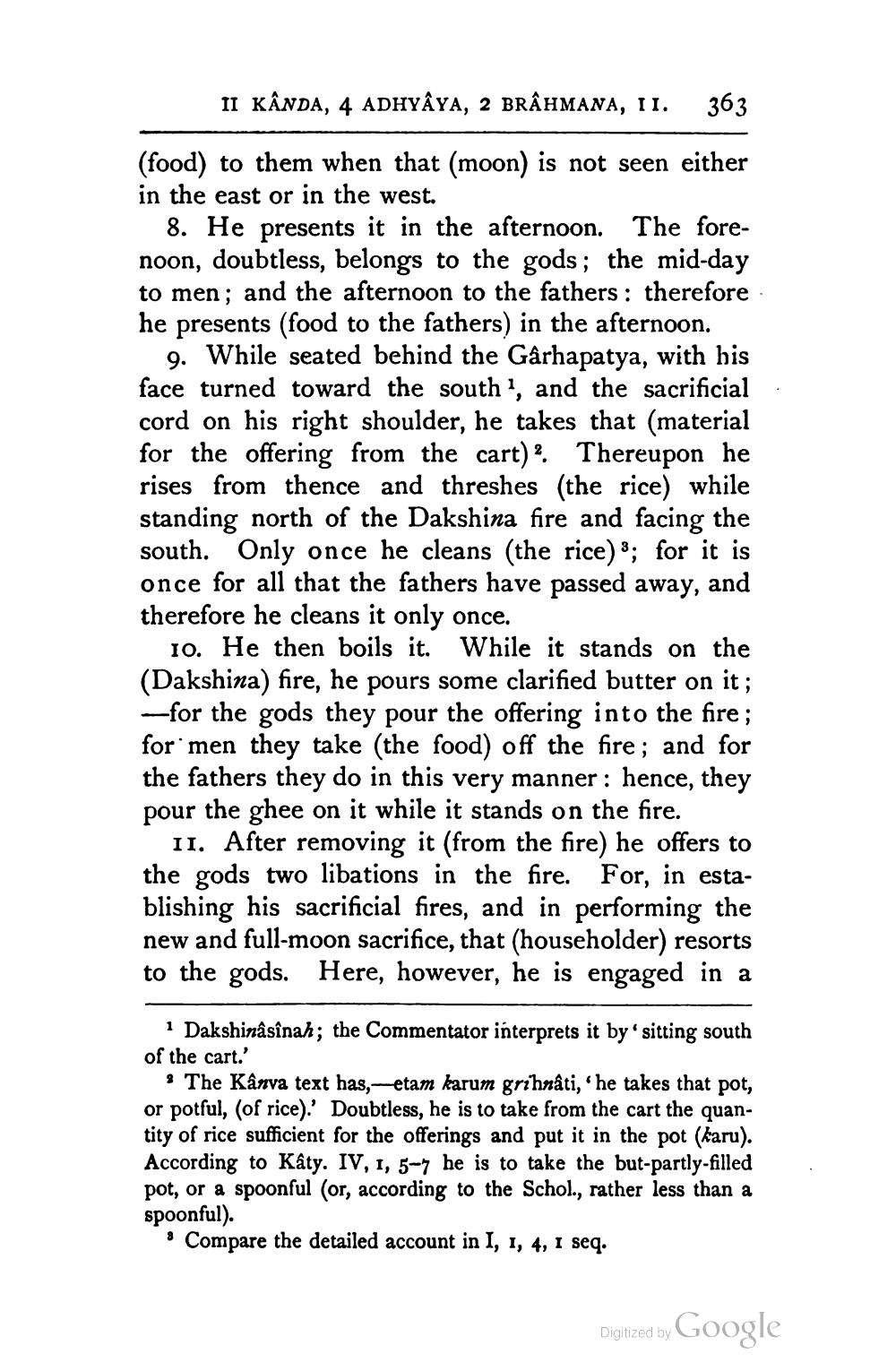________________
II KÂNDA, 4 ADHYAYA, 2 BRÂHMANA, 11.
363
(food) to them when that (moon) is not seen either in the east or in the west.
8. He presents it in the afternoon. The forenoon, doubtless, belongs to the gods; the mid-day to men; and the afternoon to the fathers : therefore he presents (food to the fathers) in the afternoon.
9. While seated behind the Gârhapatya, with his face turned toward the south', and the sacrificial cord on his right shoulder, he takes that (material for the offering from the cart) 2. Thereupon he rises from thence and threshes (the rice) while standing north of the Dakshina fire and facing the south. Only once he cleans (the rice) 3; for it is once for all that the fathers have passed away, and therefore he cleans it only once.
10. He then boils it. While it stands on the (Dakshina) fire, he pours some clarified butter on it; -for the gods they pour the offering into the fire; for men they take (the food) off the fire; and for the fathers they do in this very manner : hence, they pour the ghee on it while it stands on the fire.
II. After removing it (from the fire) he offers to the gods two libations in the fire. For, in establishing his sacrificial fires, and in performing the new and full-moon sacrifice, that (householder) resorts to the gods. Here, however, he is engaged in a
1 Dakshinâsînah; the Commentator interprets it by sitting south of the cart.'
9 The Kânva text has,-etam karum grihnâti, he takes that pot, or potful, (of rice).' Doubtless, he is to take from the cart the quantity of rice sufficient for the offerings and put it in the pot (karu). According to Kâty. IV, 1, 5-7 he is to take the but-partly-filled pot, or a spoonful (or, according to the Schol., rather less than a spoonful).
• Compare the detailed account in I, 1, 4, 1 seq.
Digitized by Google




